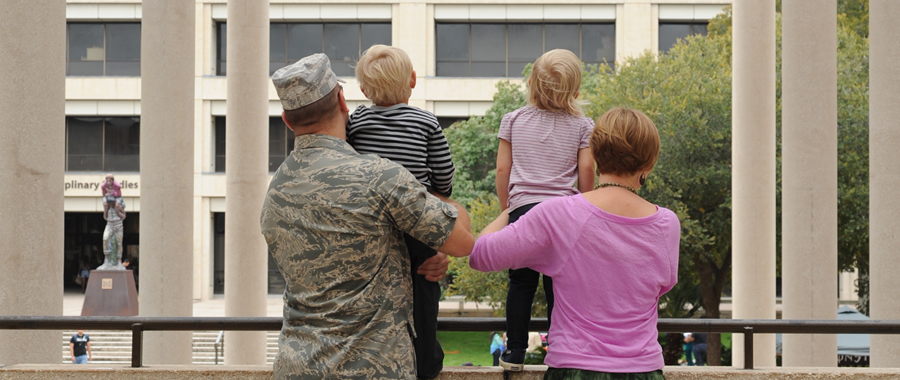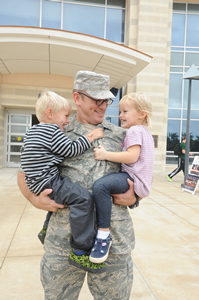


The College of Education and Human Development added a new center in 2013: The Center for the Well-Being of Military Families. The center will focus on educational transitions, including those from military schools to public schools, from one state or national educational system to another, and from high school to college. The center will focus not only on educational transitions, but also the social, emotional, and physical transitions of military children.

“We are not only dedicated to serving veterans and active-duty service members (including the National Guard) here at UTSA, but their families as well, which is why we are partnering with the Military Child Education Coalition to open our newest center, The Center for the Well-Being of Military Families,” said Dr. Betty Merchant, dean of the College of Education and Human Development (COEHD).
COEHD will be working with the Military Child Education Coalition (MCEC) to help local San Antonio schools and teachers recognize and respond to the unique challenges children of military members and their families. In doing so, they will be working with school liaison officers (SLOs) from Joint Base San Antonio (JBSA) to educate pre-service teachers and to provide professional development for practicing teachers. The Departments of Counseling, Educational Leadership and Policy Studies, and Kinesiology, Health, and Nutrition will also be involved to help with the emotional and physical transitions experienced by many military children and families.
“Our partnership with the Military Child Education Coalition specifically targets the educational needs of students, which makes it very relevant for the College of Education and Human Development to take on this center. We will be working with the educators already in the schools doing professional development, as well as educating our current pre-service teachers about the needs of military children and families.”
Betty Merchant, dean of the College of Education and Human Development
Some of the curriculum endorsed by MCEC is already being incorporated into the preparation of pre-service teachers in the Department of Interdisciplinary Learning and Teaching. As the center grows and develops, more UTSA students working toward a degree in teaching will have the opportunity to learn how to work with the special issues military children face in the classroom.
“Our partnership with the Military Child Education Coalition specifically targets the educational needs of students, which makes it very relevant for the College of Education and Human Development to take on this center,” said Merchant. “We will be working with the educators already in the schools doing professional development, as well as educating our current pre-service teachers about the needs of military children and families.”
San Antonio currently has three active installations in the city and the surrounding area.
“I think this collaboration is a match made in heaven,” said Dr. David Splitek, project manager for Higher Education Initiatives for the MCEC. “The more we can get people with different viewpoints, different organizational structures to work together for a common purpose; it just makes sense to come together.”
The center plans on engaging the leadership of Joint Base San Antonio as well as the family-support structures within Fort Sam Houston, Lackland and Randolph Field. Splitek says that it just makes sense to work with UTSA and the community to help military children and families.
“I am looking forward to the opportunity to work with the center,” said Splitek “I think that it’s going to benefit the military kids, and it is going to benefit the entire San Antonio community. Twenty years from now, we are going to look back and say, ‘Man, I am glad we started that center! Look at the positive differences it has made for our community.’”